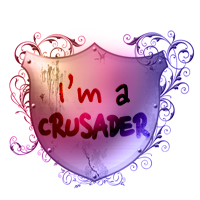Say, it's been 3 weeks since I trumpeted to the blog that I was gonna meet her. So what happened?
(All pictures in this post were taken by Prof J. Robert Lennon,
my advisor and awesome professor who also has a wicked camera - unless otherwise noted.)
The first part was a giant reading, which I attended with many others and stood in an auditorium in awe at her. She is one of the most charismatic person I have met, and I was in love by the end of the night and telling anyone I met about it.
She read from various sections, including poetry - and boy, can she read, let alone write. There was a cat died and gone to kitty heaven where he meets God in the form of a house cat and asks for his balls back, because he has woken up one day from a very bad dream and found them gone. There was a couple who appears in all three stories she will not write, always doing things masterfully or despairingly and always ending up having sex in chapter two. And just...just... go read her works, go youtube her, go stalk at her house (ok no, but attend her readings if you ever find the slightest chance to be able to do so.)
At the end, she sang parts of a song from her newest book, and we sang the last verse with her. It was an amazing moment.
Then the questions opened up; you might not be surprised at the number of people who began their questions with "I'm such a big fan/admirer of yours!" (if you guessed "almost all", you'd be right) or even "I love you."
One question was - of course, of course - about social media and writing et al. Atwood mentions the O'Reilly presentation and the Death of the Author and the Publishing Pie (which I know has been making the rounds at blogs for a while now, but let me link it just in case;
http://www.youtube.com/watch?v=-6iMBf6Ddjk) and summed things from that presentation nicely. She also said something that will be the only thing in direct quotation about her because it's what I remember
clearly as something she said:
And you can't have books without authors. "You need authors to write the books." Pointing to her temple, "Gee, Margaret, that's profound."
Other question began with a spoiler of her book, since it was along the lines of "Do you regret killing off the group of so_and_so?" So Atwood simply said, "We'll change the question to 'Do I regret anything'?" And the answer was something like (if my memory serves me right), "Authors of course are humans and we feel bad and we stay up all night agonizing over things..... But no, really, on killing off characters, we're quite evil."
The second part was the Q&A session held in the lounge of our English department, in which a number of awestruck undergraduates who could click reply fast enough could attend and fire questions away at her. At first we were all a little shy and silent, but by the end we had to be forced away from her.
And to each question, however vague, she gave a long answer with specific details. At one point we cracked jokes at the expense of adverbs (and Harry Potter, which apparently has been described by Stephen King as always doing things "angrily"?).
My question was: "So I've seen your O'Reilly presentation" - hint hint zomg I'm ur fanz - "and do you think the changing format of literature will change literature itself? I mean, the novel itself is a pretty new form, compared to poetry which has been around for much longer, and..."
Except, of course, it was a lot more incoherent than that, with me babbling and trying to make sense. What I was trying to say was, perfectly rehearsed in my mind, that if the printing press created the novel, will internet and digital print (read: kindle et al) create a new form of literature? The rise in popularity of flash fiction might be a result of that, although I don't know enough about the history of ff beyond what wikipedia tellme, or perhaps the twitter fiction is a better example.
She cut me off around at that point, and gave a long answer which I will attempt to recreate:
Yes, the novel hasn't been around as long, but story telling always has been. It goes way back - way back beyond poetry, when everything was oral. It was a survival tactic back then. If Uncle Pete got eaten by crocodiles down in the river, the ones who could tell the story and thereby communicate, Don't go into the river, would survive longer than the ones who could not, and pass on the genes better. So the act of storytelling is really coded into us over countless years. It will probably stay with us for just as long in the future.
She also talked of female heroines and of actually making a living out of writing. She talked about her education, the career path she was considering taking, the writing she did when she was seventeen and then nineteen. I 'm sure you can find all this from her website and other places, but let me just say: it's amazing hearing it from herself. I'll say it again, she's so charismatic. It's not like she's gesturing wildly or talking loudly. She just sits there and smiles and talks leisurely, and you can't help but fall in love with her. (And yes, I'm a girl.)
Afterwards, after deliberating, I got up the courage to - well, first approach my advisor, who was supervising the session, and ask if it'd be all right to ask for autographs. He told me to go ahead, so I did and got it signed. I probably should have been more personal with her, but I was too awed to do anything other than meekly tell her my name when she asked me who it should be to. But I got my copy of The Handmaid's Tale signed (and a friend's, who showed up to the reading but couldn't attend the Q&A - mostly because she didn't know about it. The perks of being an English Major, you see).
(This is the pic taken by my crappy webcam, with my name blurred out in a really pathetic attempt.
Moot point, because anyone who actually knows me real-life will recognize me the moment they read this...)
I did get up the courage to ask her about M.A in writing program at a certain university, because I saw that she was on the list of adjunct faculty. She answered that she had acted as a mentor for a couple years in the past for something-or-other but she wasn't anymore. I was completely crushed about that, because how amazing would it be to have her as a mentor? Not someone like her, but her. Yowza.
I came away from this completely inspired and gearing up to write. After what is pretty much half a month, looking back now, do I feel the same? I have to said the inspiration fades as it tends to do in lazy college students who'll get off their bums only after the professor uses his most effective Glare, but writing this has made me inspired again. Getting off my butt....now.






























